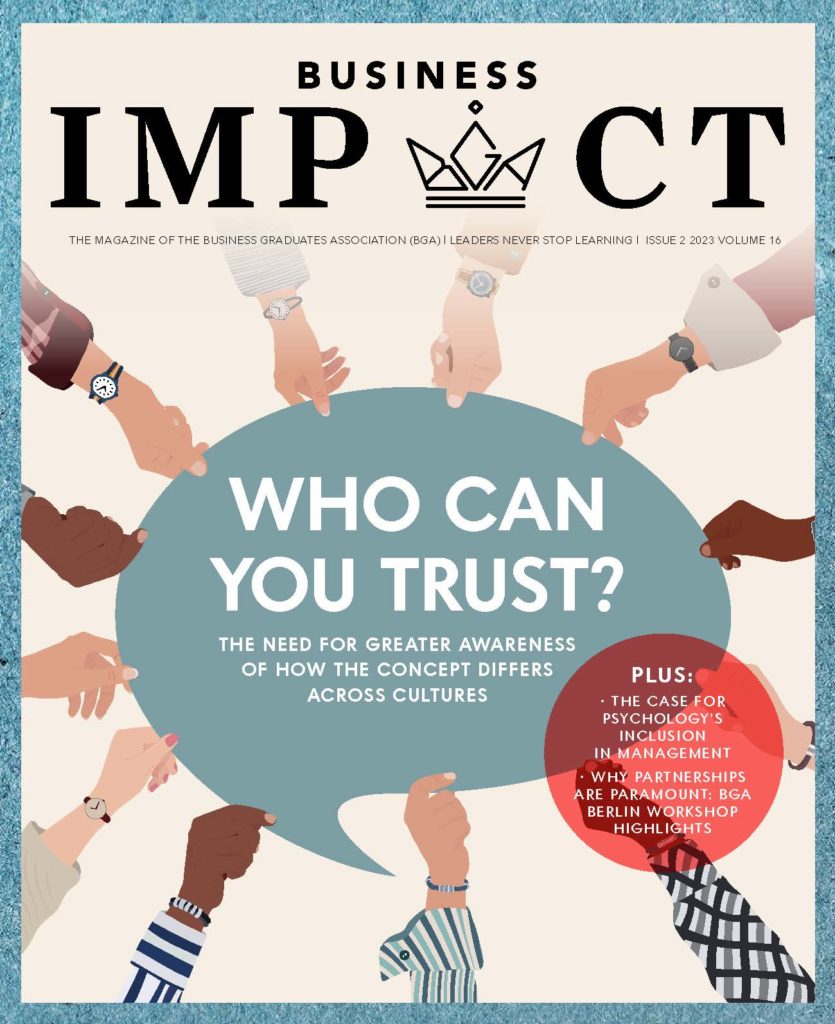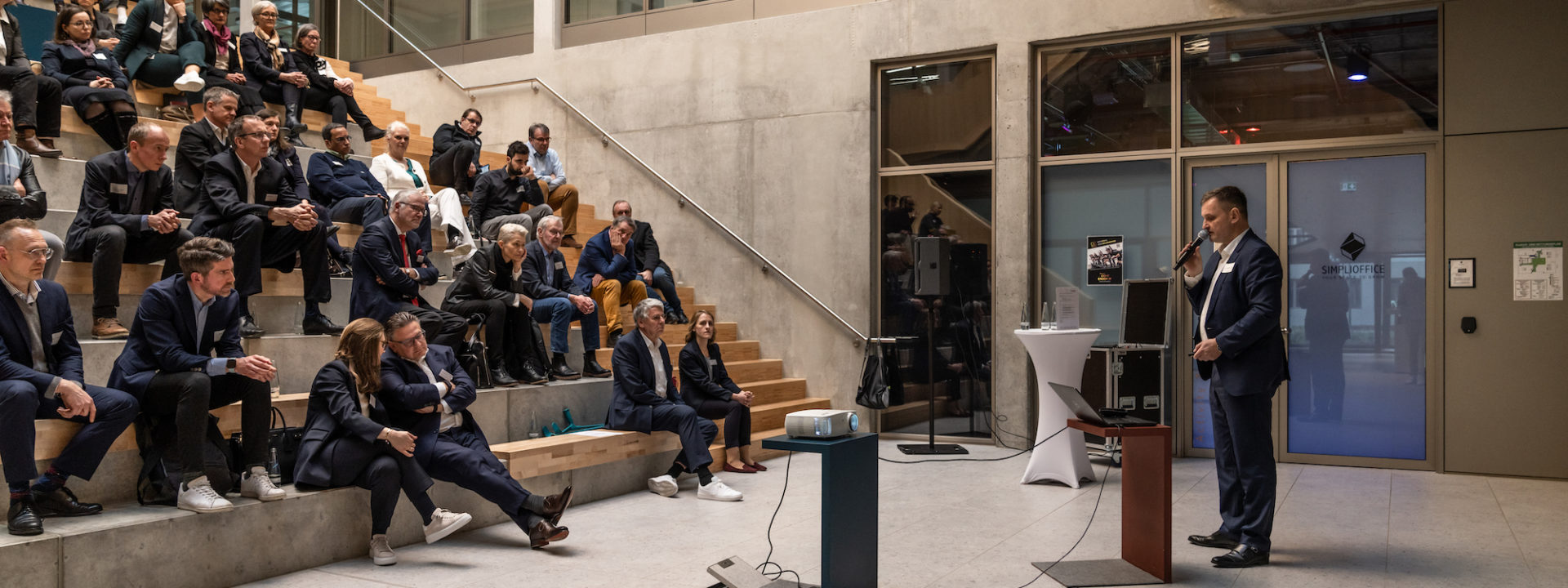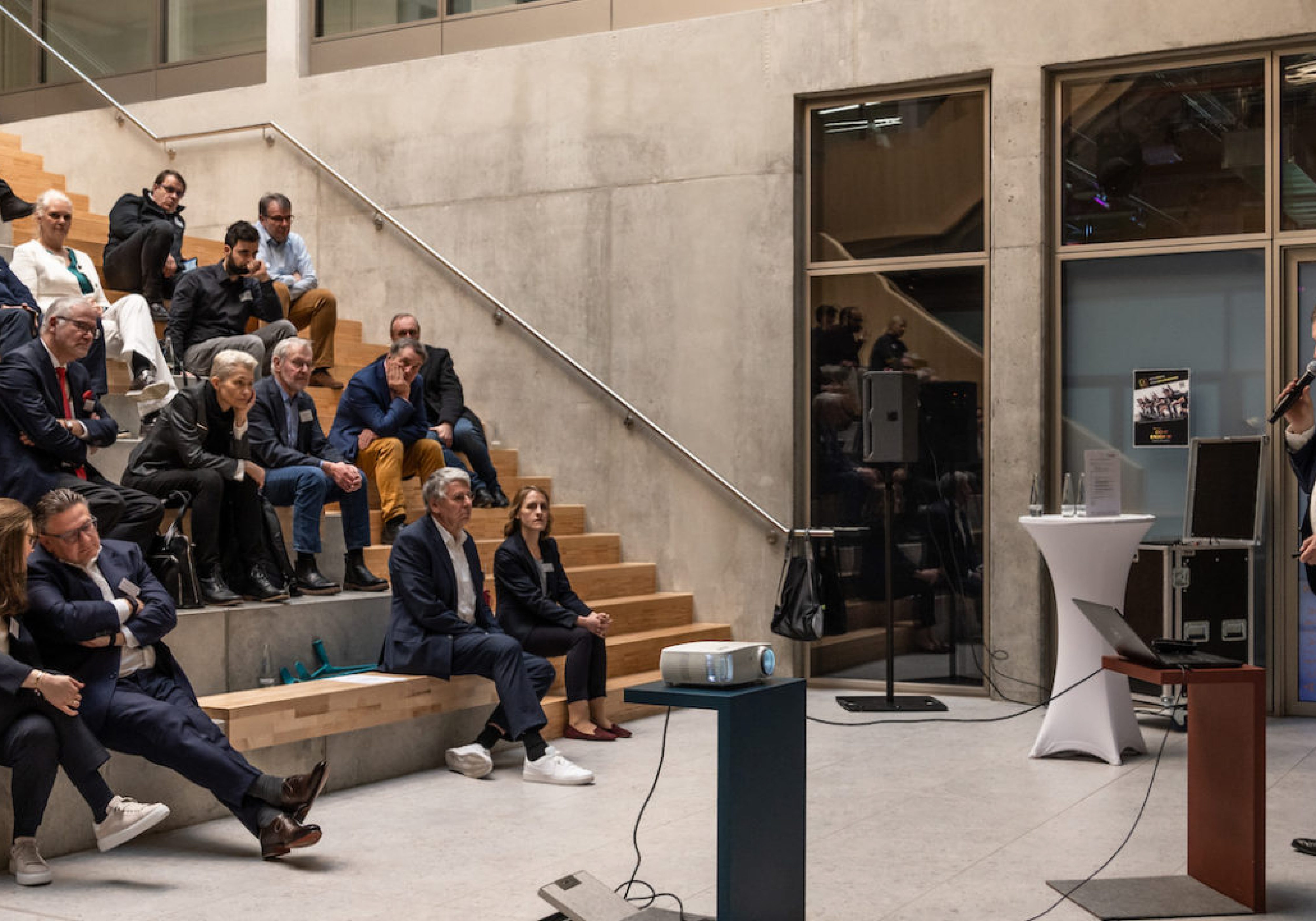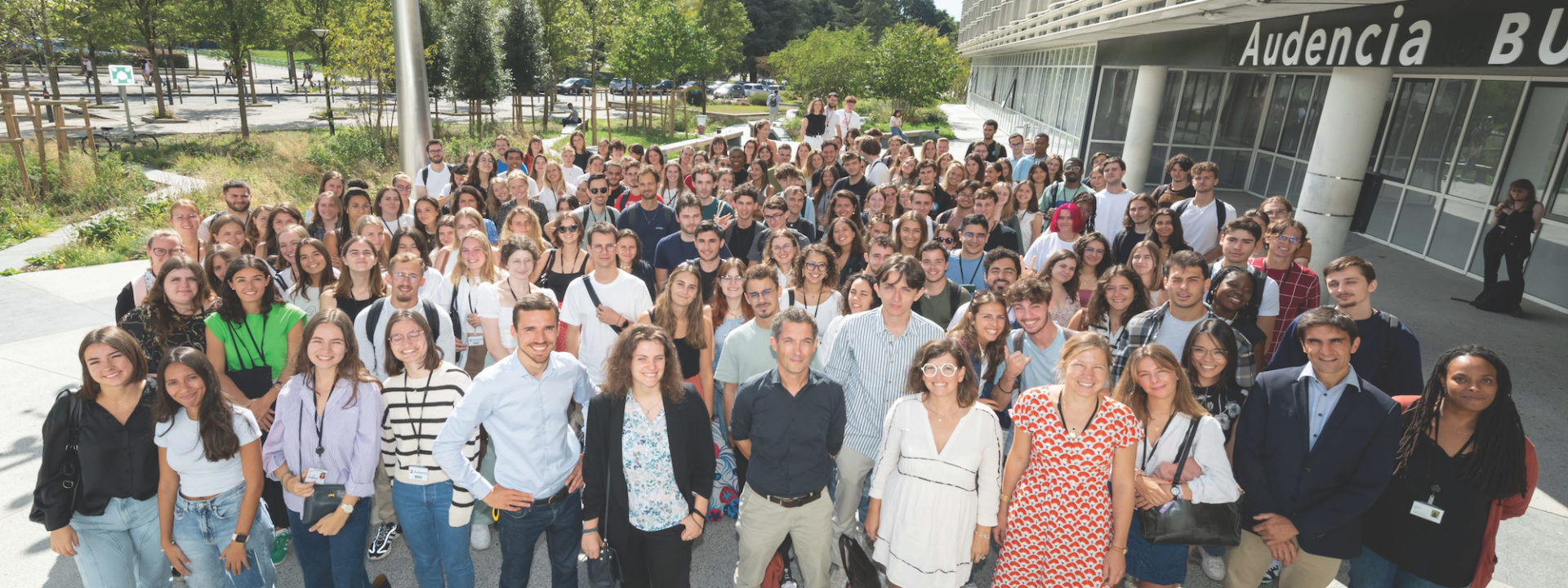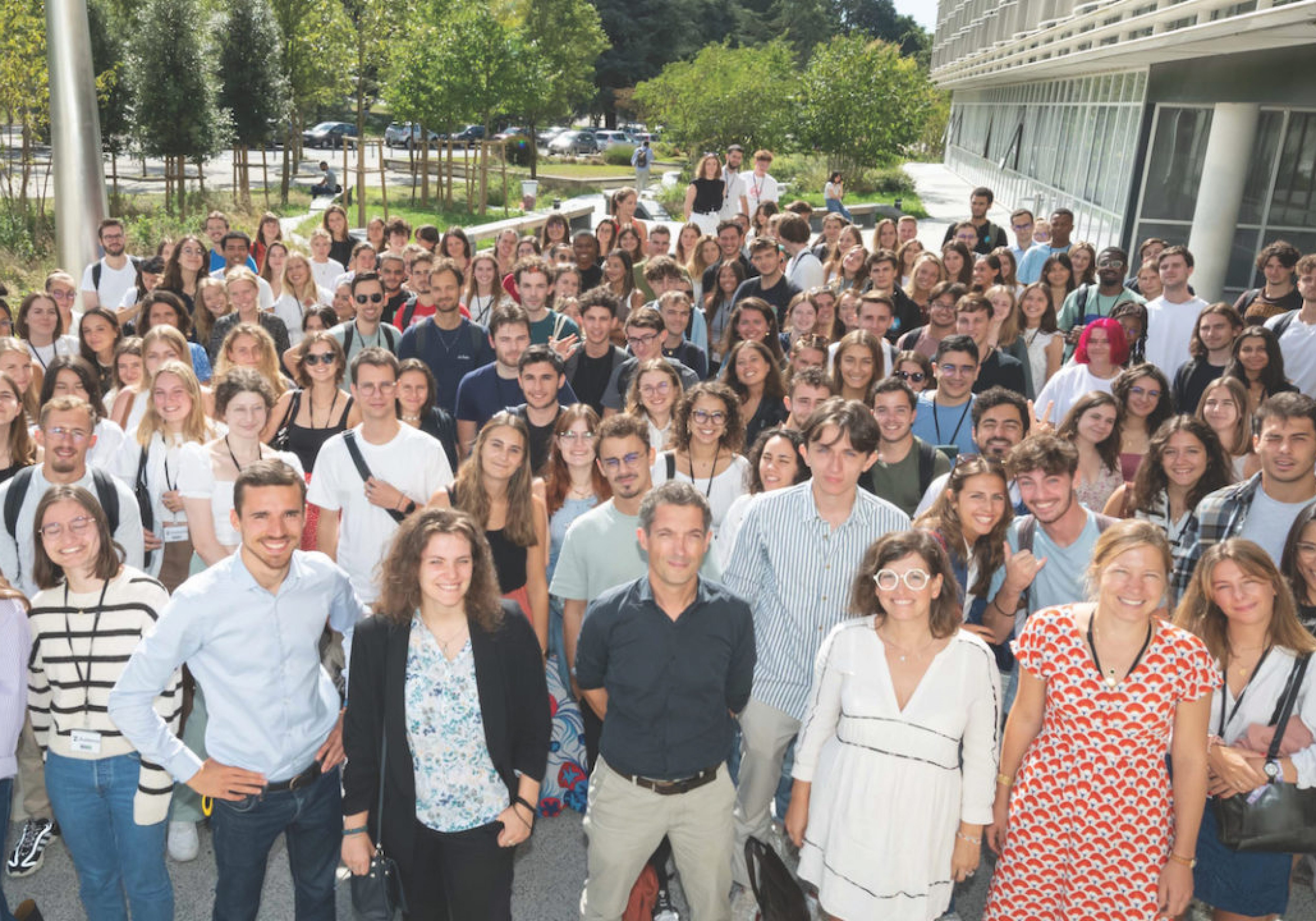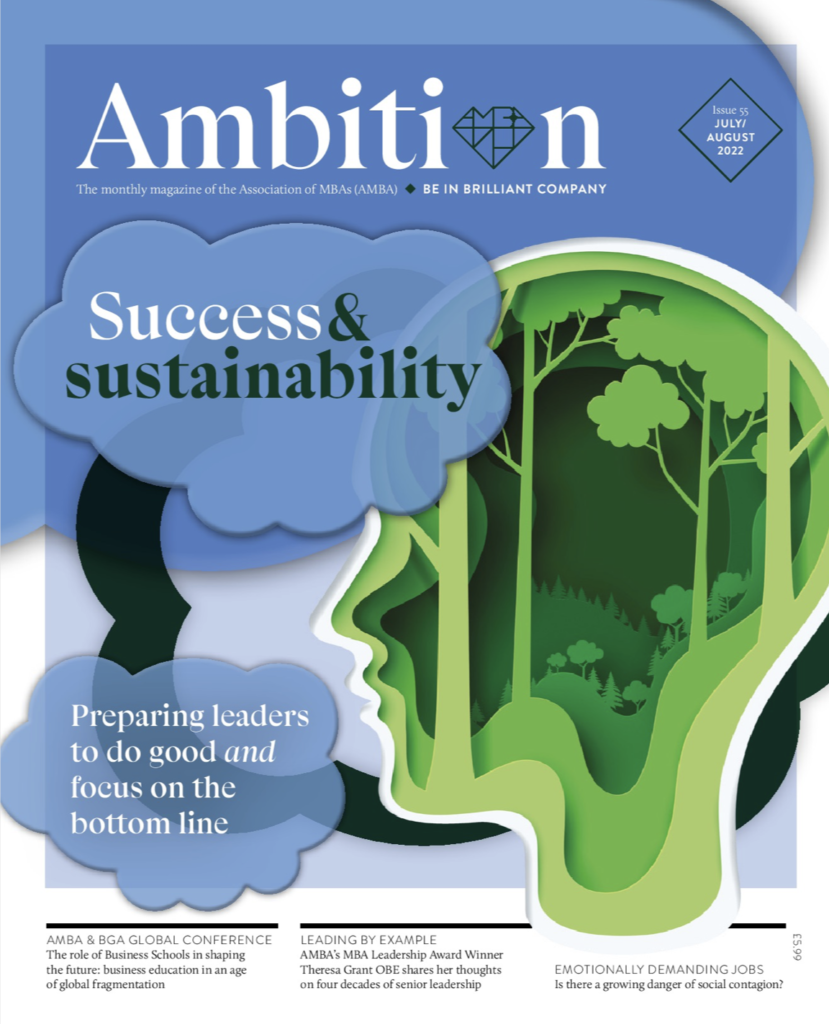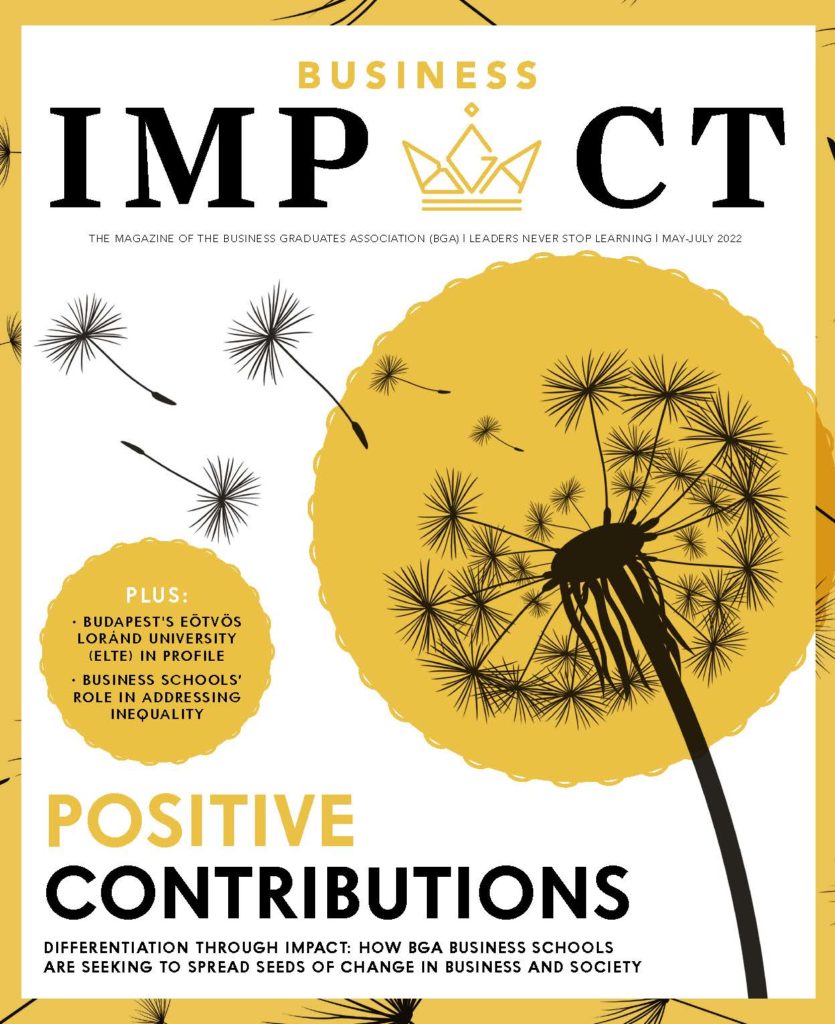We often underestimate how much power we hold in terms of being able to make a difference. As an organisation, political body, business or business school, as an individual or as part of a group, we are all capable of contributing to bettering the world in one form or another.
However, it is one thing to understand what we are capable of achieving, and another to put this knowledge into action. Business schools have the capacity to educate, to inform, to put knowledge into good hands, but also to be the leaders of change themselves. Being able to harness this power holds much potential.
I am Vice Dean at Nyenrode Business University in the Netherlands, where I am determined that the business school is a force for good – not just talking the talk but demonstrating how to walk the walk too. At the forefront of all schools’ agenda should be the need and willingness to adapt to today’s environment and support students in being more effective global citizens. Everyone has to keep learning and developing continually in order to remain relevant.
At Nyenrode Business University, we have adapted our teaching to incorporate this idea of constant change and life-long learning – interdisciplinary learning, where students are offered multiple perspectives on the same subject. This also calls for the development of both the rational side of people and their creative, intuitive, emotional side. It’s not just about business, or having the toolkit to generate a lot of money or profit, but giving students a meaningful purpose; a way to use this toolkit to change the world for the better.
Meeting students’ needs
There are several options available to meet students’ needs at Nyenrode Business University, as these are at the basis of every course and programme. It starts with a continuing dialogue with stakeholders to understand what is going on in the outside world and what issues are at stake in practice.
It is important to bring these issues together in the classroom, to discuss them, and to understand the impact on society. We advocate bringing research and practice closer together to get a better understanding of the impact on society and to seek solutions. For example, we bring our research output together in impact cases, which describes the impact of our research on society.
There are both long- and short-terms implications to the global shift towards sustainability-centric business schools. We currently find ourselves in the fourth industrial revolution, with disruptive technologies and applications such as artificial intelligence, big data, Internet of Things, virtual reality, quantum computing and Blockchain.
This fourth industrial revolution is characterised by the blurring of the physical, digital and biological world. We also realise how physically connected we are to each other, and our social awareness is growing. Internationally, there is a growing level of awareness of sustainability, diversity, inclusion, humanisation and meaning. This all brings with it great changes for students and participants, businesses
and educational institutions.
In fact, there are five major trends which are having an impact on society. We have ensured that they are also therefore the leading principles in Nyenrode’s strategy. They are:
• A sustainable society is everyone’s responsibility.
• Technology is changing every organisation.
• Exponential change calls for continuous adaptation of people and organisations.
• Ecosystems are the cornerstone of future growth.
• Organisations are becoming more people-orientated.
Yet the future of education and learning is practical, experimental, personalised, continuous and lifelong, so it is increasingly difficult to predict what knowledge and competencies will be needed in the future. Everyone has to keep learning and developing continually in order to remain relevant.
As I mentioned, we have also adapted our teaching to incorporate this idea of constant change – interdisciplinary learning, where students are offered multiple perspectives on the same subject. This also calls for the development of both the rational and the creative, intuitive, emotional side of people.
Transformative education
Our strategy is transformative education: the transformation of people, organisations and society. The full impact of environmental, social and governance (ESG) themes on society are unknown. Unknown risks cannot be managed; you must recognise them before you can get started with them.
These themes show complex patterns in which hardly any structure can be applied. Facing this requires an open mind, self-knowledge, wisdom and curiosity.
We want to contribute with research and education to understand this complicated societal challenge, and to help identify a solution. Creative thinkers and practical problem solvers are also key to finding an educational solution.
There are many different practical steps schools can take to implement these key issues within their programmes. For example, putting green issues into the curricula or working with sustainable and ethical employers. For Nyenrode, it took the form of embracing the United Nations’ Sustainable Development Goals (UN SDGs) in its 2020 – 2024 strategy.
Our primary focus is on the UN SDG 8: ‘Decent work and economic growth.’ Inclusive and sustainable economic growth can drive progress and generate the means to implement further sustainability goals. The pandemic has led to the loss of more than 255 million full-time jobs.
Although economic recovery is under way, it will take several years to fully build back not only the economy, but society as a whole. In addition, this SDG has sub-goals that include labour rights, inclusion and equality at work, and access to financial services.
Nyenrode Business University strives to be an inclusive organisation, with diverse perspectives and backgrounds. We believe it is important to be transparent around how we are incorporating this goal with our community, in the hope that it may create a snowball effect for other schools or companies.
One practical step we are taking is to incorporate the SDG into education and targeted impact research which allows us, simultaneously, to strengthen the societal impact we are having. Our valuable in-house knowledge is actively shared, in order to enhance results in terms of meeting all the sustainable development goals. By showing leadership and taking the initiative at an organisational, team and individual level, we are working towards a sustainable future. This goal ties in with our purpose (serving society by shaping responsible leaders), origin, and strategic focus, and is underpinned by our core values: leadership, entrepreneurship and stewardship.
In this way, studying at Nyenrode Business University encourages critical thinking that focuses on how to deal with current and future societal challenges. We even help to develop practical solutions by building knowledge centres with business partners, and solving challenges together. Further examples of the work Nyenrode Business University is doing around the sustainability agenda relates to SDG 17, which involves ‘strengthening the means of implementation and revitalising the global partnership for sustainable development’.
These days, serving society goes beyond organisational and national boundaries. It requires co-operation with partners in ecosystems. We strive to be a hub where people and organisations make new connections and create social impact jointly.
Sustainability in our ways of working
We simply cannot ignore sustainability in our way of working any longer. This means we are investing research, time and money in our sustainable future. This has been put into practice in our facility services and the way we maintain our estate.
We have been voted one of the top 10 most amazing business school campuses in the world. We are set in a serene location between the River Vecht and the Amsterdam-Rhine Canal. It comprises a 13th-century castle and a lovely setting that’s rich in wildlife and woodland. Our campus is home to many animals.
So, next on our list is to start thinking about how we incorporate the natural environment of our estate into our buildings. It goes much further than just providing tools or knowledge on how to make the world greener. We want this to be mirrored in our campus too.
Business schools are often in a unique position in that most of their students work in, or have a close connection with, the business world. Students’ connections with business practice are key to their educational philosophy. Students bring the issues from their daily working reality into the classroom, and are offered the tools and mindset to make a difference as responsible leaders.
ESG challenges, in particular, also demand an approach based on an integrated chain of responsibility. All parties must work together to resolve these issues. The chain is production as well as consumption. It starts with understanding the knowledge and awareness of the issues by all parties in the chain.
It is key to bring these parties together in the classroom to discuss these issues and to understand the impact on society. We advocate bringing research and practice closer together to gain a better understanding of the impact on society, and to seek out solutions. For example, we bring our research output together in impact cases, which describes the impact of our research on society.
The challenge for future leaders is to avoid looking at interests in isolation, and to deal with the increased complexity in a balanced and informed way. Education should be focused on bringing the various perspectives and interests of different stakeholders together in a learning environment. This requires human skills such as logic and emotional intelligence, creativity, and intuition.
Shaping future leaders to be socially engaged
At Nyenrode Business University, we focus on the leadership, entrepreneurship and stewardship values which create future leaders who are socially engaged and undertake social and inclusive initiatives. They deal with society and the environment in the most sustainable manner possible in order to contribute to a circular economy. In my opinion, all business schools need to focus on helping to build a better future.
To sum up, the world today is moving at tremendous speed and it can be challenging to keep up with changing environments, new challenges and all the uncertainty that comes with unfamiliar territory. However, if we are to shift our lens slightly – to see not obstacles but opportunities – we have a chance to make a change.
This is our perspective at Nyenrode Business University – that the current challenges of sustainability and climate change are a chance to come up with new, innovative solutions; things that haven’t been tried before, things that are ‘outside the box’.
It’s a chance to give companies and businesses a new purpose, to instil a sense of meaning and thoughtfulness into their initiatives, and what they want their outcomes to be.
Rapid digitisation is providing us with new tools and ways to learn and should be championed instead of shied away from. This is certainly a perspective that we support and encourage at Nyenrode Business University – and one that we advocate to all business schools.
Of course, as individuals, we all have the ability to create change; however, together, business schools have the capacity to influence future generations of leaders – and to lead themselves.







